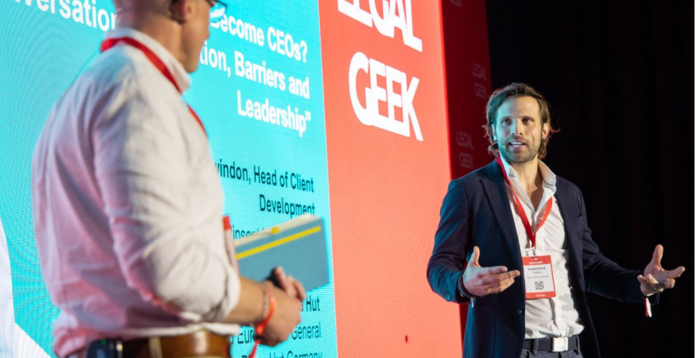Why You Need to Pay Attention to D&I Today
The Way We Work
For a very long time, there have been people who have tried to keep ‘work’ and ‘home’ lives separate. We don’t hold this attitude at Vario or at Pinsent Masons and have always encouraged our staff and consultants to bring their whole selves to work. We know that our lives outside of work is what makes us who we are and to actively actively hide that away is very unproductive. The rigid and traditional narrative of ‘don’t bring your problems to work’ has wider implications than just a drop in productivity too; it presumes that we are all capable of working to the best of our abilities in our current work environment, that we are all equal and there are no hurdles unique to each of us; we just have to ‘get on with it’. In fact, this dismissive attitude to personal issues is one of the reasons why Pinsent Masons jointly launched the Mindful Business Charter in 2018.
Not a Level Playing Field
It’s very easy to dismiss the hurdles faced by others when the current structure does not penalise you. Unfortunately, many of our colleagues have barriers and issues we have to deal with on top of our actual work. For underrepresented groups facing these issues, it can be overwhelming and a major determining factor for work productivity or success. Pinsent Masons’ lawyer Alexandra Aikman recently described her own experiences as a black woman navigating the world of law and how a lack of diversity throughout an organisation – particularly at the highest level – creates an environment which exacerbates the status quo and fails to connect with the wider society in which they operate.
However, it certainly does feel as though the winds of change are blowing; the incident surrounding George Floyd and growing support for BLM has now shifted this issue into the spotlight and gained global support. Businesses too, are now questioning whether they are an ally of the cause, looking to make changes to help create a fairer society or become part of the problem.
Education, not Demonisation
The first step to changing organisation is to recognise that there is indeed a culture which is not inclusive. The best way to answer this question is to ask those employees currently in the company for their honest feedback. By using an external consultancy to conduct these interviews, you can mitigate any bias or sensitivity over uncomfortable truths compared to being interviewed by a member of senior management. Increasingly businesses are looking inwardly at their internal cultures to address this matter. The aim of such undertakings however is not a witch hunt for individual employees who don’t understand the importance of changing the current culture, but should be viewed as an educational experience in which we all benefit, including those who have been beneficiaries of the outgoing regime. Highlighting the issues faced by their fellow colleagues is the best approach to build empathy and create lasting change. It’s also an issue for all employees to rally behind, not just those from underrepresented groups.
Stuart Affleck, Director of Brook Graham, our consultancy business specialising in advising clients on Diversity & Inclusion matters, gives reasons why clients usually approach them, “They are coming to us to equip them on how to have a conversation, giving them confidence and support and education around how to discuss race and ethnicity within the organisation but also looking at this as a longer term plan that is going to identify where bias may be prevalent in the employee lifecycle, in policies and in practices, so you can unpick that hardwiring that might be built in unconsciously into organisations which is creating that inequality”.
Change for Good
Increasingly, businesses are running out of excuses not to be more inclusive; businesses which build an inclusive workplace are twice as likely to exceed financial objectives, they’re six times more likely to be more innovative and improves team decision making by 20%. Even if a decision-maker in a business doesn’t agree with the sentiments around the changes, the business case for the changes are now undeniable. Indeed, building an inclusive workplace is not innovative, it’s the norm for businesses of today.
Latest blogs

From Legal Expert to Strategic Leader: Rebecca Rawson’s Journey Beyond Law
In this latest interview in our in-house legal series, we're joined by Rebecca Rawson, Senior Managing Counsel at MasterCard.

Breaking the Legal Mould: Richard Crabb on Moving from Law to Leadership
In this latest interview in our in-house legal series, we’re joined by Head of Legal and Commercial at NuBreed Hotels.

From Legal Counsel to Market Leader: How Lawrence Grabau Developed His Career
In this latest interview in our in-house legal series, we’re joined by Lawrence Grabau, General Manager, Pizza Hut Germany and former Chief Legal Officer for Pizza Hut UK & Europe